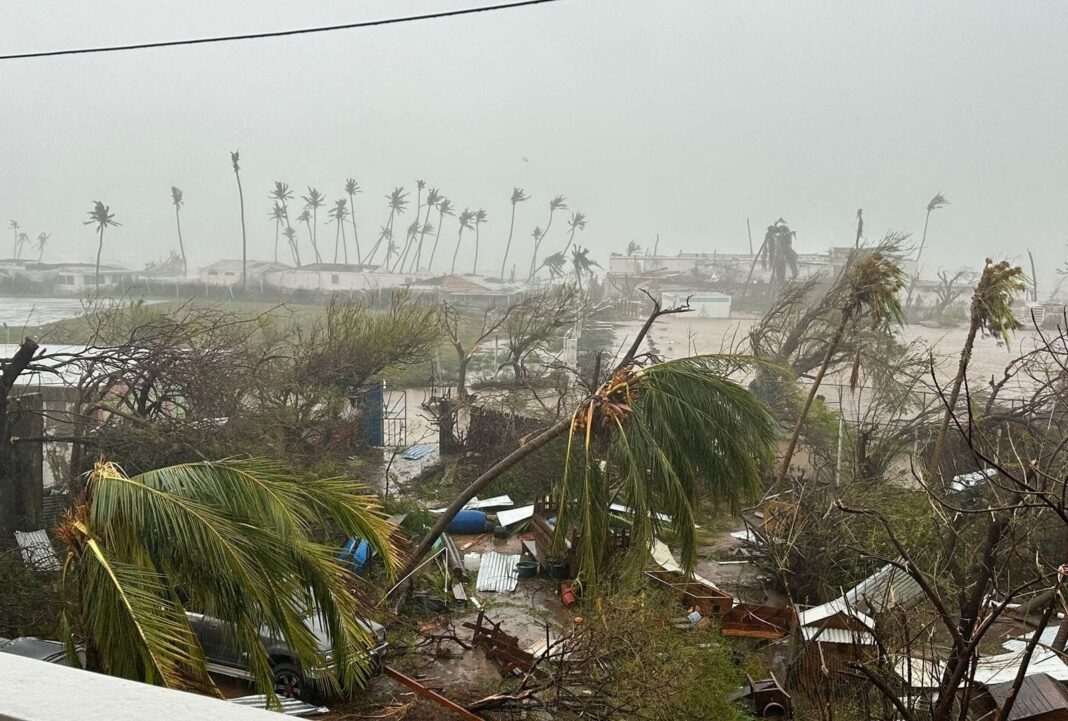As we still assess the damages caused by Category 5 Hurricane Beryl in the Caribbean, and as Typhoon Gaemi pounds Southeast Asia, the devastating power of extreme weather events like these has once again been thrust into the global spotlight.
Hurricane Beryl was the earliest ever formed hurricane of this level to strike our region, another first for major climate events in recorded history. The storm swept through Barbados, St Vincent and the Grenadines, Grenada, St Lucia, and then the Cayman Islands, before hitting the Yucatan Peninsula and then the Gulf of Mexico. Its impact was felt all the way in the United States’ Midwest.
The Caribbean, a region known for its stunning beauty and vibrant culture, has become the unfortunate poster child for climate vulnerability. Each hurricane season brings with it a looming sense of dread, as communities brace for storms that are growing stronger and more unpredictable. Each year, such extreme weather phenomena are getting worse, and this year they started even earlier.
The devastation wrought by Hurricane Beryl is a harrowing reminder of this harsh reality. Homes are flattened, infrastructure obliterated and lives tragically lost. The economic toll is staggering, with recovery efforts stretching the limited resources of these nations to their breaking point.
The escalating frequency and intensity of such hurricanes underscore a stark reality: The continued use of fossil fuels is fuelling climate change, making these catastrophic events more severe and frequent, striking small island nations like those in the Caribbean the hardest. As islander citizens, we bear the brunt of these impacts while being the least responsible for the climate crisis.
The science is unequivocal: Climate change, driven by the relentless burning of fossil fuels, is amplifying the severity of extreme weather events. The warming atmosphere holds more moisture, leading to heavier rainfall, while rising sea levels exacerbate storm surges. The Caribbean’s geography makes it especially susceptible to these changes, with low-lying islands facing the threats of powerful hurricanes, rising seas, ocean acidification, droughts and high temperatures. For residents of these islands, climate change is not a distant or abstract concept; it is a clear and present danger that disrupts our lives with increasing regularity.
The climate crisis and its effects on coral reefs and marine life, vital for the biodiversity and economies of Small Island Developing States (SIDS), pose a significant threat to these nations due to the concentration of people, assets and infrastructure in coastal zones.
Many SIDS rely heavily on tourism, fisheries and agriculture, which are heavily impacted by climate change. They often lack the financial, technological and technical resources needed to implement effective climate adaptation and resilience measures, which leads to more poverty and emigration.
This inequity is a glaring injustice that the international community must address with urgency and determination. It is not enough to offer post-disaster aid; we must tackle the root cause of these increasingly destructive storms. It is high time for a binding international treaty to regulate fossil fuels and protect our island communities.
Such a treaty would enforce strict limits on fossil fuel extraction, promote a just and equitable transition to clean and fair energy sources which will continue to facilitate economic growth, and hold countries accountable for their contributions to global heating. It would also include provisions to support the most vulnerable nations, ensuring they have the resources to adapt to and mitigate the impacts of climate breakdown.
The time for half measures and incremental changes is over. The world needs bold, decisive action to combat the climate emergency. For the Caribbean and other small island states, this is not just a matter of environmental stewardship; it is a matter of survival. The establishment of a Fossil Fuel Treaty would signal a global commitment to ending the fossil fuel era and ushering in a more sustainable, equitable and safer future for all.
Hurricane Beryl’s destructive path has already faded from the headlines, but we must not forget the lessons it imparts as it leaves permanent scars on our people’s lives and livelihoods.
The climate crisis is here, and it is accelerating. The victims of this crisis – those in the Caribbean and beyond – deserve more than sympathy; they deserve action. The call for a Fossil Fuel Treaty is a call for justice, for resilience, and for the protection of our planet. We urge governments to heed this call with the urgency and resolve it demands.
The views expressed in this article are the author’s own and do not necessarily reflect Al Jazeera’s editorial stance.







